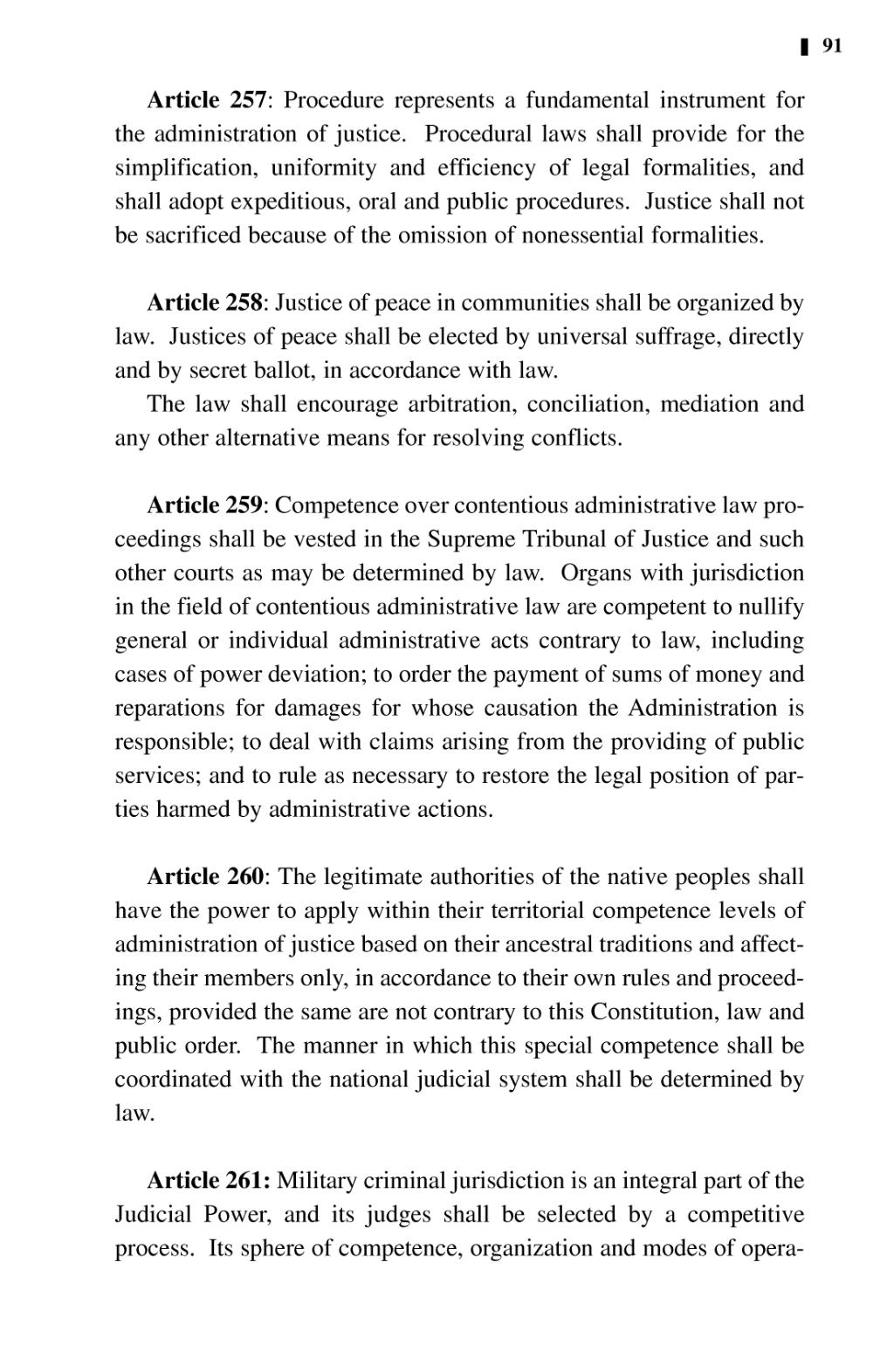Article 257: Procedure represents a fundamental instrument for the administration of justice. Procedural laws shall provide for the simplification, uniformity and efficiency of legal formalities, and shall adopt expeditious, oral and public procedures. Justice shall not be sacrificed because of the omission of nonessential formalities.
Article 258: Justice of peace in communities shall be organized by
law. Justices of peace shall be elected by universal suffrage, directly
and by secret ballot, in accordance with law.
The law shall encourage arbitration, conciliation, mediation and any other alternative means for resolving conflicts.
Article 259: Competence over contentious administrative law proceedings shall be vested in the Supreme Tribunal of Justice and such
other courts as may be determined by law. Organs with jurisdiction
in the field of contentious administrative law are competent to nullify
general or individual administrative acts contrary to law, including
cases of power deviation; to order the payment of sums of money and
reparations for damages for whose causation the Administration is
responsible; to deal with claims arising from the providing of public
services; and to rule as necessary to restore the legal position of parties harmed by administrative actions.
Article 260: The legitimate authorities of the native peoples shall
have the power to apply within their territorial competence levels of
administration of justice based on their ancestral traditions and affecting their members only, in accordance to their own rules and proceedings, provided the same are not contrary to this Constitution, law and
public order. The manner in which this special competence shall be
coordinated with the national judicial system shall be determined by
law.
Article 261: Military criminal jurisdiction is an integral part of the
Judicial Power, and its judges shall be selected by a competitive
process. Its sphere of competence, organization and modes of opera-
